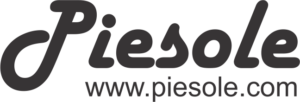The consolidation of cloud data usage, AI – Artificial Intelligence and the Internet of Things, and theirs disruptives and destructives wave of old behavior patterns, will lead the healthcare industry to become the most complete area in digital transformation 4.0.
We are at a critical juncture in the revolutionary technological convergence of medical history, with genomics, biosensors, artificial intelligence, and robotics leading the way in the era of digital medicine. These emerging technologies will have a profound impact on what healthcare is and how it is delivered.
Within 5 years, 90% of jobs in the medical industry will require some digital skills. In particular, professionals will need to keep pace with artificial intelligence and robotics, as these new technologies could change the roles of clinical staff and managers in the coming years.
———————————————————————————————
One of the most fascinating devices from the science fiction TV series Star Trek is the Tricorder. A futuristic device that collects information from the user’s body and diagnoses the condition as soon as it is placed near the patient.
At the time, this magical device seemed like an incredible fantasy, because most of us couldn’t imagine how this small, portable device could scan the entire body’s organs. Today, the Tricorder has become a reality.
Fifty years ago, we lived in a simulated world, and sensors weren’t part of our daily lives. Today, sensors are already in our cars, our homes, and our cell phones. Soon, they will enter our bodies. As the British National Health Service (NHS) recently released report, “Preparing to Deliver the Healthcare Workforce in the Digital Future,” emphasizes.
This report warns that we are at a critical juncture in the convergence of revolutionary technologies in the history of medicine, with genomics, biosensors, artificial intelligence, and robotics leading the way in the era of digital medicine. These emerging technologies will have a profound impact on healthcare and how it is delivered. The convergence of these digital applications can provide a more comprehensive approach to personalized health and population management.
Besides an excellent description of how technology will fundamentally innovate healthcare practices, the report’s primary focus is preparing healthcare professionals to accommodate the key adjustments needed to deliver healthcare in the digital future.
Because the potential to reshape and improve healthcare with new technologies is enormous, without a well-trained, confident, and capable workforce using these new systems and a lack of collaboration between patients and caregivers, these new systems’ full impacts are unlikely to be achieved.
For example, if a new testing method is better able to determine the risk of recurrence or worsening in patients who have already received cancer treatment, this may improve patient care immediately. However, if the technology’s best use is not understood, the benefits may not be immediately realized.
Until now, doctors, nurses, and pharmacists have played an important role in healthcare, and they are often trained in highly specialized areas. But as medical data becomes more intense and artificial intelligence becomes more proficient in handling vast amounts of diverse and complex data, this situation may change. The new digital medicine will require more multifunctional approaches, including data scientists, computer scientists, engineers, and bioinformatics.
The report states that there will be a growing demand for digital education for healthcare professionals, and that within 20 years, 90% of healthcare jobs will require some digital skills. In particular, professionals will need to keep pace with artificial intelligence and robotics, as these new technologies could change the role of clinical staff and managers over the next 20 years. This will include the automation of simple repetitive tasks, improved robot-assisted surgery, and the complete automation of most management processes.
How are healthcare professionals prepared to face the digital future? The author has compiled the relevant content in the report for readers.
Half of adults get their health information online, around 1.6 million online searches a day are about NHS Choices (82% via search engines and 75% via mobile or tablet devices). NHS England also estimates that 60% of people who use the internet to check their condition will not continue to travel to frontline services.


